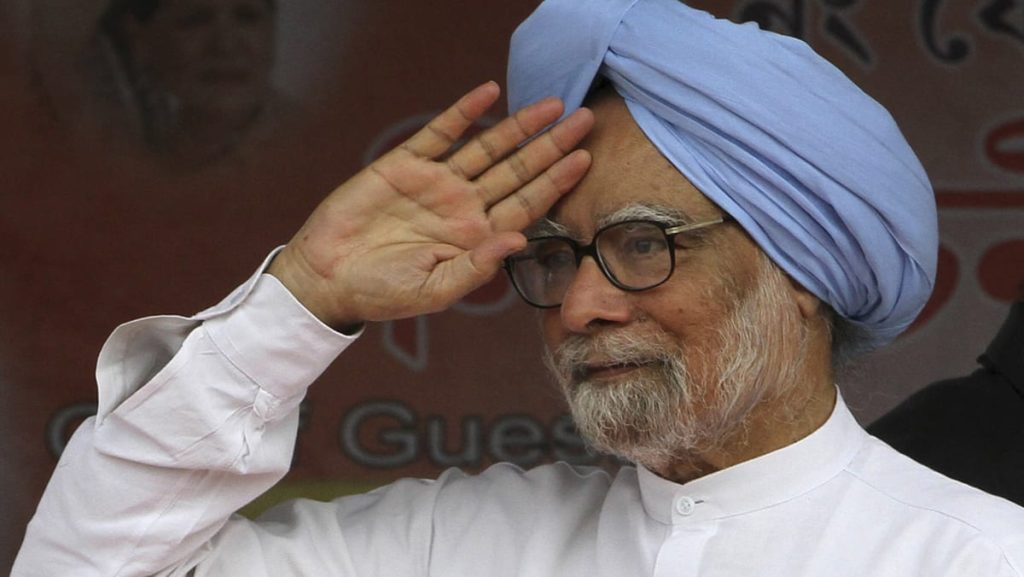Manmohan Singh’s life and career represent a remarkable journey from humble beginnings to the highest echelons of power, marked by intellectual brilliance, economic acumen, and a commitment to transforming India’s economic landscape. Born into poverty in pre-partition India, Singh’s dedication to education propelled him to academic heights, culminating in a doctorate from Oxford University, where his research focused on the critical role of exports and free trade in India’s economic development. This intellectual foundation laid the groundwork for his future contributions to the Indian economy, foreshadowing the transformative reforms he would later implement.
Singh’s early career path traced a steady ascent through the ranks of economic and financial institutions. He earned recognition as a respected economist, serving as India’s central bank governor and providing valuable counsel to the government on economic policy. Although he held no overt political aspirations, his expertise and reputation positioned him as a key figure in shaping India’s economic trajectory. This culminated in his unexpected appointment as finance minister in 1991, a pivotal moment that would define his legacy and forever alter the course of India’s economic history.
The year 1991 marked a critical juncture for India, as the nation faced a severe balance of payments crisis that threatened to cripple its economy. Manmohan Singh, newly appointed as finance minister, stepped into this challenging role and embarked on a series of bold and transformative reforms. These reforms, often referred to as liberalization, privatization, and globalization (LPG), aimed to dismantle the decades-old system of license raj, a complex web of regulations and permits that stifled economic growth and innovation. Singh’s reforms deregulated industries, opened up the Indian economy to foreign investment, and promoted competition, effectively rescuing the nation from the brink of economic collapse and setting it on a path of rapid growth and development.
Singh’s 1991 budget speech, in which he invoked Victor Hugo’s famous quote, “No power on earth can stop an idea whose time has come,” encapsulated his vision for India’s economic future. He envisioned India emerging as a major global economic power, a belief that drove his relentless pursuit of economic liberalization. His reforms not only addressed the immediate crisis but also laid the foundation for India’s subsequent economic expansion, transforming the nation from a closed and insular economy to one increasingly integrated with the global marketplace. This period marked the beginning of India’s transformation into a major player in the world economy.
Singh’s unexpected elevation to the position of Prime Minister in 2004 further solidified his role as a pivotal figure in modern Indian history. Following the Congress Party’s surprise victory, Sonia Gandhi, the party leader, chose Singh to lead the government, a decision driven by political considerations and a recognition of Singh’s impeccable integrity and economic expertise. This appointment marked a significant departure from the traditional political landscape, as Singh, a technocrat rather than a seasoned politician, assumed the highest office in the land. His premiership ushered in a period of unprecedented economic growth, fueled by the reforms he had initiated as finance minister and further reinforced by his government’s policies.
During his tenure as Prime Minister, Singh’s government implemented various welfare schemes aimed at distributing the benefits of India’s burgeoning economic growth to the wider population. Programs like the National Rural Employment Guarantee Act (NREGA), which guaranteed rural households a minimum of 100 days of wage employment, aimed to alleviate poverty and improve living standards in rural areas. Furthermore, the landmark 2008 Indo-US nuclear deal, a significant diplomatic achievement, further cemented India’s growing global influence and strengthened its strategic partnership with the United States. However, despite these successes, Singh’s government faced internal political challenges and resistance to further economic reforms, highlighting the complexities of navigating India’s political landscape. Despite these obstacles, Manmohan Singh’s legacy as a transformative figure in India’s economic and political history remains firmly established.

